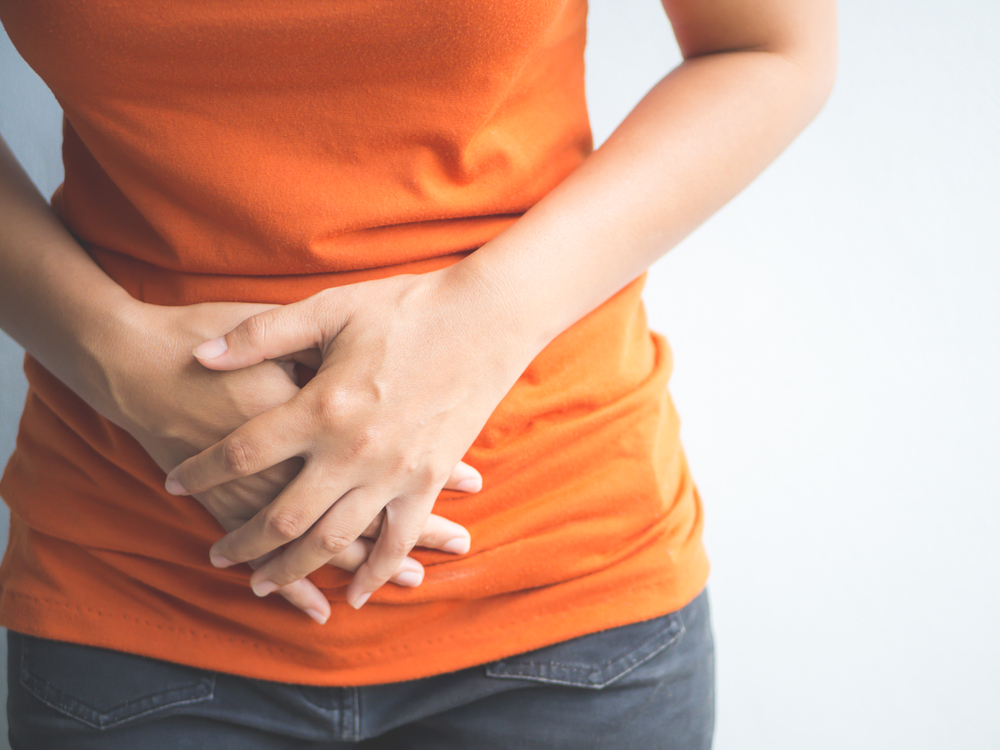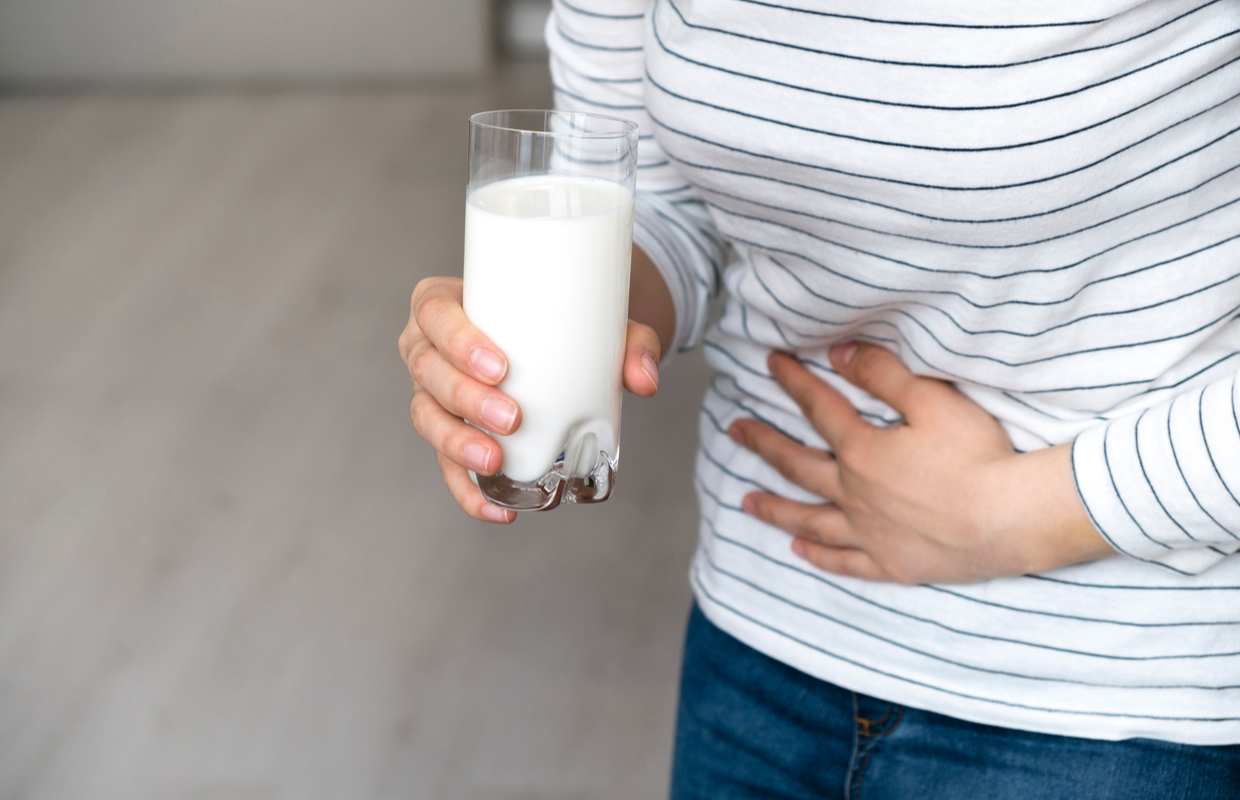Does your digestion seem to be grinding to a halt as you get older? Naturopath and educator for Enzymedica UK, Leyla Moudden, shares four telltale signs your digestion could be struggling due to age and the onset of menopause…
4 signs age and menopause are affecting your digestion

Sign 1: you bloat easily
Bloating is when the stomach is too full of air and gasses. You can tell the difference between bloating and belly fat by seeing whether you can suck in your stomach. If you can inhale your tummy in, it indicates it is full of gas. If you cannot, it is more likely that what you are dealing with is fat.
During menopause, rising cortisol turns off the production of acid and digestive enzymes, which in turn leads to food particles reaching the intestines intact. In the small intestine, good and bad bacteria try to eat the food and, in doing so, they produce gas. As gut bacteria are not designed to digest food that has not been effectively liquidised by digestive enzymes and stomach acid, the fermentation process goes on and on, producing more and more gas, inflating the abdomen and causing a lot of discomfort.
Solution: try taking digestive enzymes
Digestive enzymes taken with the first bite of a meal help break down the food while it is in the stomach, replacing the digestive capacity you have lost. As well as increasing the absorption of nutrition, the act of supporting the breakdown of food in the stomach protects the intestines from having to ferment the food we have swallowed and, in doing so, reduces the occurrence of excessive gas and bloating.
This is why abroad-spectrum digestive enzyme such as Enzymedica Digest Gold (£10.99) can play an essential part in minimising bloating during the menopausal years.

Sign 2: You gain weight around the middle
Weight gain around the middle, or “muffin top” as it’s colloquially called, is a frequent occurrence reported by women once they reach menopause. There are two mechanisms at work contributing to this during and after menopause.
The first is that a decline in oestrogen triggers the ongoing storage of fat cells, leading to overall weight gain. The second is that rising cortisol slows down digestion, so you don’t feel as satisfied as you should after eating. Rising cortisol will also affect sleep, which will trigger food and particularly sugar and carbohydrate cravings the following day.
Solution: eat mindfully
A well-digested meal can offset these effects by helping your body receive nutrients and energy from food, reducing hunger pangs and making your body feel satisfied for longer, curbing overeating and slowing down the accumulation of fat around your tum.
By thinking about food before you eat, and staying present when you eat, you help your body digest food more easily. Digestion also works much better when you are in a relaxed, calm state. Actually sitting down, thinking about your food and enjoying the process of eating will help you digest it far more effectively.

Sign 3: You get constipated
Oestrogen improves muscle tone throughout the body. The movement of your bowels relies on the healthy contraction of muscle tissue that line it. Loss of muscle tone, along with poor digestion can work together to generate constipation.
Solution: give your digestive system a helping hand
The good news is that constipation is a menopausal symptom that’s responsive to digestive enzymes. By supporting the breakdown of food in the stomach, the workload on your lower organs is relieved. This leads to easier bowel movements.
Other ways to relieve constipation are increasing dietary fibre and fluid intake, chewing food into a paste before swallowing and taking moderate exercise, such as walking or swimming.

Sign 3: You experience food sensitivities
Low oestrogen causes a rise in cortisol, and cortisol turns down the amount of stomach acid you produce. Stomach acid triggers the release of digestive enzymes, so you experience a double hit of reduced digestive capacity.
To understand how the stomach works, imagine biting into a freshly cut lemon. You’ll probably find your mouth floods with saliva in preparation. The acid and digestive enzymes in your stomach are being released in the same way. When cortisol is high, this production of digestive fluids is reduced. This means you may have a dry mouth instead of a wet one when imagining that lemon.
When digestive fluids and digestive enzymes are low, your ability to break down food is then reduced. At the top of your stomach is a little flap that keeps it closed. This protects your throat from the burn of stomach acid. That door is closed when stomach acid reaches a high enough volume. As cortisol is reducing those secretions, you may feel a burning sensation in your chest or throat after you eat. Another knock-on effect of poorly digested food is low energy, or not feeling full.
Solution: eat smaller, more frequent meals
Taking digestive enzymes with each meal helps reduce the severity of heartburn. It will also leave you feeling fuller for longer, reducing the need to snack.
Larger meals give your digestive system more work to do, triggering bloating and wind. This happens because poorly digested food enters back up into the small intestine where it irritates the lining of the gut. This can trigger inflammation and gas production.
You are more likely to get good nutrition from eating smaller, more frequent meals than eating one large meal every day.







